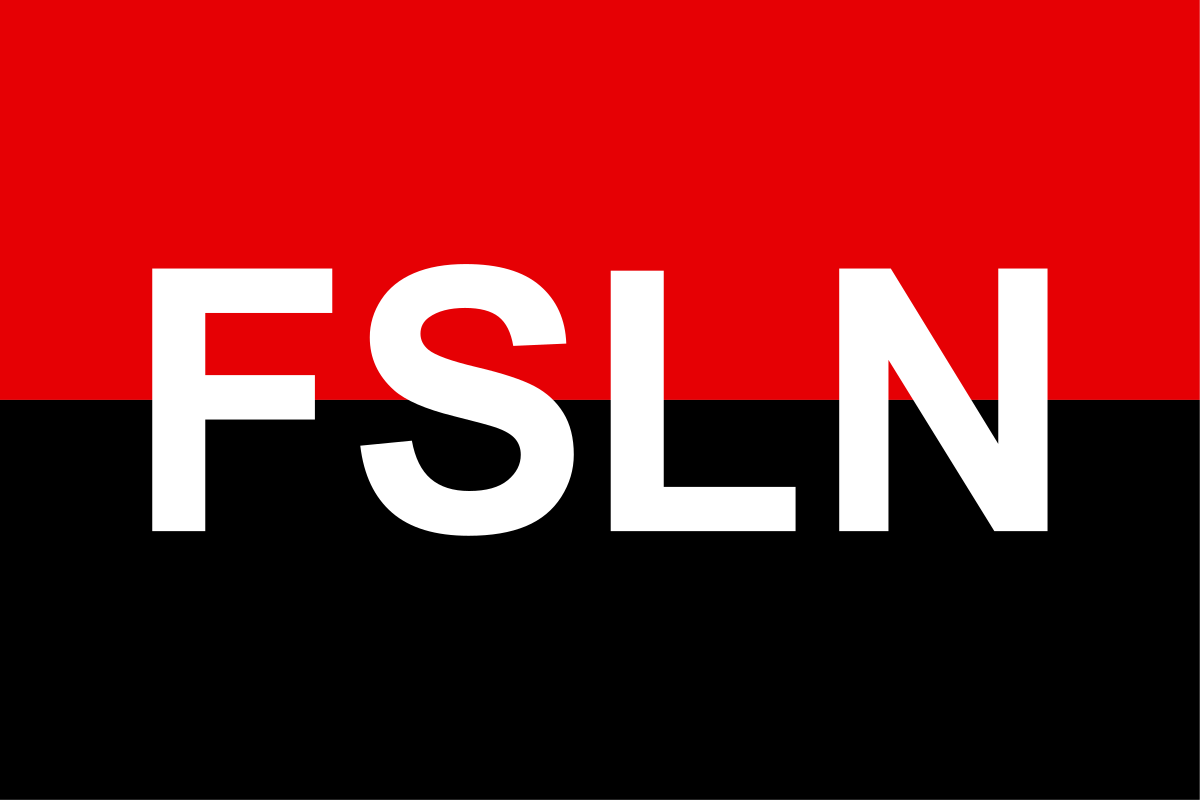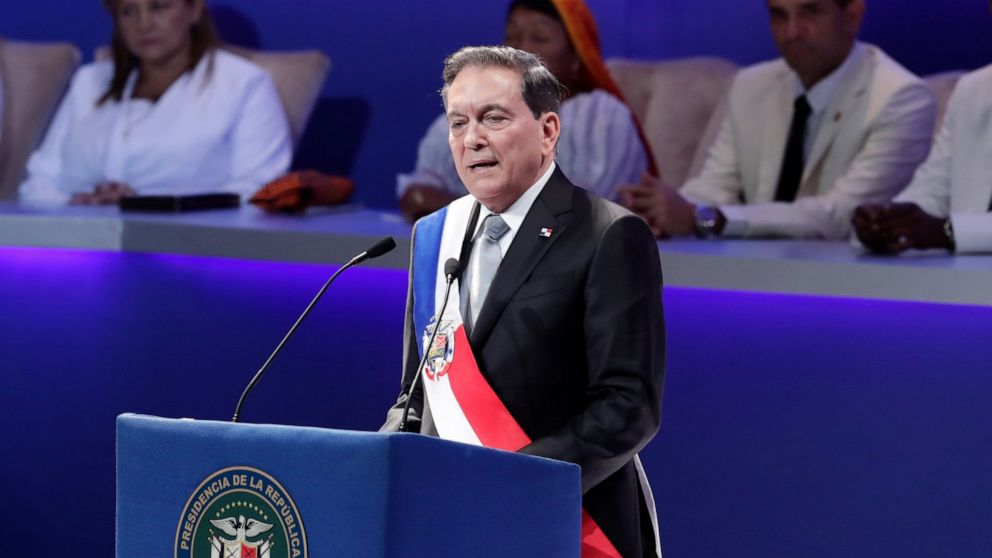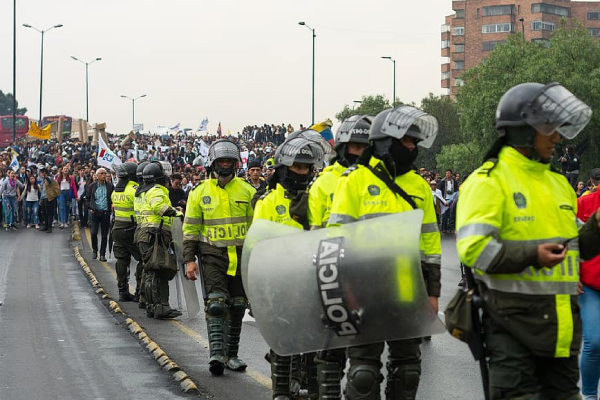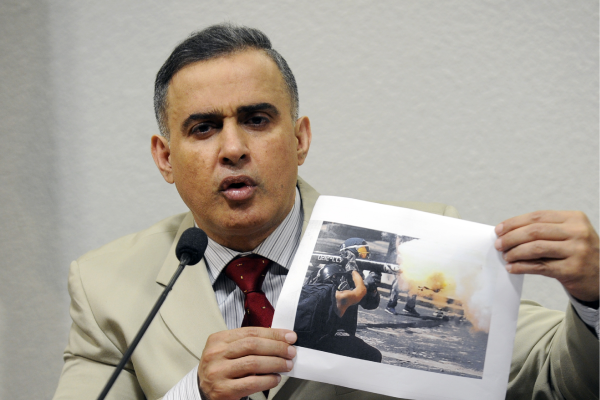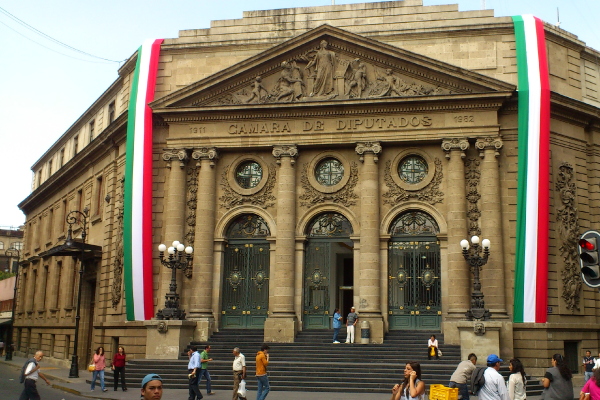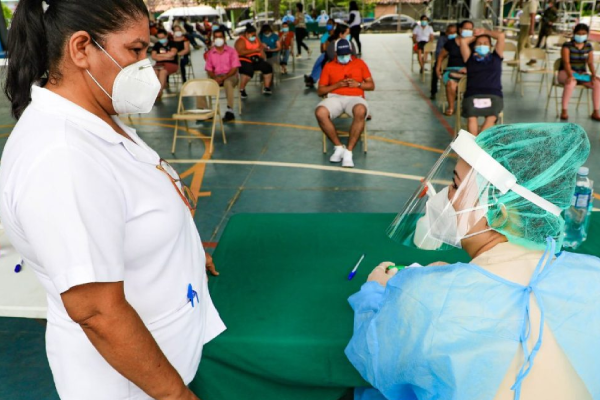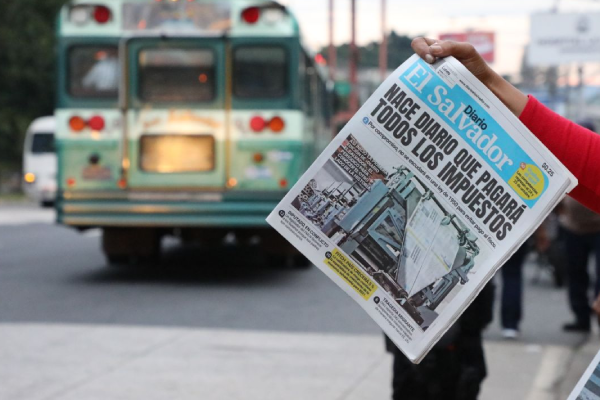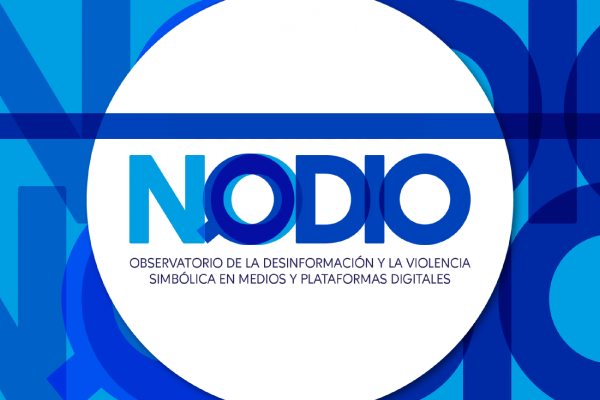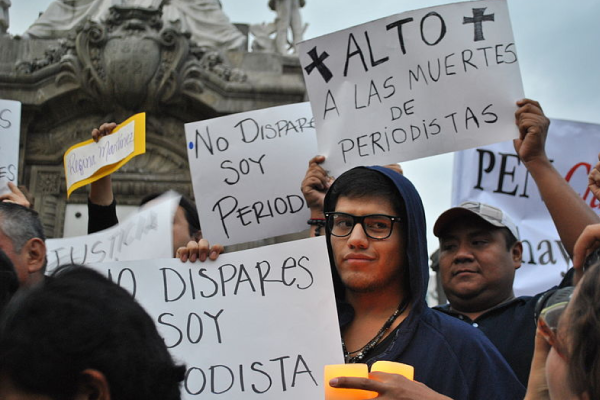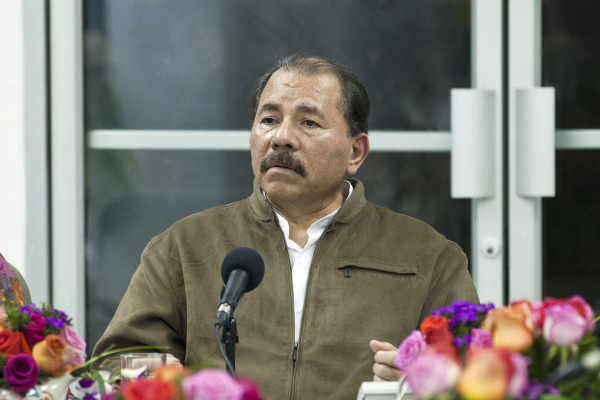
A tool designed by Directorio Legislativo to monitor
regulations with the potential to impact civic space
in Latin America and the Caribbean.
Fundación Directorio Legislativo | October 2020
About Civic Space Guardian (CSG)

Civic Space Guardian (CSG) is a tool designed by Directorio Legislativo to monitor regulations with the potential to impact civic space in Latin America and the Caribbean.
These are regulations affecting freedom of expression, freedom of association, freedom of peaceful assembly, citizen participation and access to public information. To provide a broader overview, we also include the rating assigned by Civicus according to the state of civic space in each country.
Ruling party presents bill to punish hate crimes with lifetime imprisonment

Nicaragua
Impact | Negative
Probability | High
Civicus Rating | Repressed
On October 22, legislators from the Frente Sandinista de Liberación Nacional (FSLN) introduced a constitutional reform bill to punish those who commit “hate crimes” with life imprisonment. The issue had been promoted by President Daniel Ortega since mid-September, after a notorious case of gender violence. He had even urged the Supreme Court of Justice to draft the bill.
Currently, the maximum penalty established by the National Constitution is 30 years. Since it is a constitutional reform, the bill must comply with two instances: first the approval to change the constitutional text and then the modification of the Criminal Code.
Both criminal law specialists and representatives of the opposition fear that, if it succeeds, the government may use hate crimes to limit freedom of expression and the right to protest. The current Criminal Code does not criminalize hate crimes but considers ideological or political discrimination as a circumstance that aggravates criminal responsibility. It is likely that the study of the bill will begin in the last week of October.
Cortizo, first American president to sign the Salta Declaration of Freedom of Expression in the Digital Era

Panama
Impact | Positive
Civicus Rating | Limited
On October 21, the Inter-American Press Association (IAPA) held its 76th General Assembly, with Panamanian President Laurentino Cortizo as keynote speaker. This was also the occasion chosen by the President to sign two international documents that are key to the promotion of freedom of expression: the 2018 Salta Declaration and the 1994 Chapultepec Declaration.
The Salta Declaration commits the states that adhere to it to enact legislation and public policies that guarantee the openness, neutrality and accessibility of the digital space for all and their attachment to human rights. Two years after its approval, Cortizo is the first Latin American president to sign the document.
At the meeting, Cortizo was praised for his work in favor of freedom of expression and freedom of the press, in particular for the law for transparency in public administration, the establishment of the “habeas data” action in 2002 and the repeal of the so-called “gag laws” instituted in the 1970s.
There were warnings, though. In the presentation of the report on the situation of freedom of the press in Panama, IAPA indicated that lawsuits have often been used as tools of intimidation of the press and to promote self-censorship. It also pointed out that Article 195 of the Criminal Code, which criminalizes slander and libel through the media, is in force, and warned of the actions of the Electoral Tribunal to classify the dissemination of fake news or disinformation during an electoral process as a punishable offense.
The opposition introduced a bill to reform the National Police

Colombia
Impact | Positive
Probability | Low
Civicus Rating | Repressed
On October 9, opposition lawmakers introduced a bill in the Senate to reform the National Police. The initiative comes after complaints and demonstrations in September following a series of cases of police abuse and excessive use of force. The bill seeks to “strengthen the civilian character of the National Police”, prohibit and regulate aggressive police tactics and procedures, strengthen external control, and give impetus to the National System of Citizen Participation, among other provisions.
Despite the National Constitution establishing the Police is an armed body of civilian nature, the authors of the bill argue that a military approach has been used in crackdowns on marches and protests.
The bill includes recommendations from the United Nations around strengthening the civilian character of the force, prohibiting arbitrary and irregular practices and procedures, reformulating the policy of recruitment and training, and creating external controls and audit mechanisms, including the establishment of a National System of Citizen Participation. Currently, the National Police operates within the remit of the Ministry of Defense, which means, among other things, that crimes allegedly committed by members of the force are investigated by the military justice system. In regard to this, the bill proposes the body form part of the Ministry of the Interior.
Attorney General proposes changes for law enforcement

Venezuela
Impact | Negative
Rating Civicus | Repressed
After the publication of the report of the United Nations Independent Mission on Venezuela that accused the government of Nicolás Maduro of committing crimes against humanity, Attorney General Tarek William Saab said that “it is time for a restructuring of the Special Action Forces (FAES) and all the police forces”.
The Special Action Forces were created in 2016 as “elite corps”, even though there are no documents to certify this and no procedural manuals have been found. It is “the most lethal police institution in Venezuela”, according to the United Nations mission. The team headed by Michelle Bachelet determined that the FAES are responsible for 64.5% of the deaths in 2019.
Although the statement of Attorney General Tarek William Saab would seem to suggest an admission of guilt, he appears far from acknowledging the gravity of the allegations made against the FAES. Although there are no consistent official figures on police related deaths, the annual report by Observatorio Venezolano de Violencia documented, only in 2019, 5,286 deaths caused by “resistance to authority”.
Bill to prohibit organizations from receiving funding from outside sources moves forward in the Chamber of Deputies

Mexico
Impact | Negativo
Probability | High
Rating Civicus | Repressed
On October 21, the Chamber of Deputies passed a tax reform presented by the Secretary of Finance and Public Credit, Arturo Herrera, which proposes limiting the funding of organizations and foundations authorized to receive donations deductible from income tax (ISR, in Spanish).
In practical terms, when more than 50% of their funds come from sources unrelated to their corporate purpose, they may lose their permission to operate. In addition, they must allocate all their assets to other entities authorized to receive ISR-deductible donations. According to the current law, there are twelve activities that would be covered by this restriction, including welfare, educational, research, cultural and ecological organizations.
Currently, the Law of Civil Society Organizations prohibits donations from sources that do not agree with the corporate purpose registered by the institution. The authorities argue in defense of the reform that it is necessary to “prevent these entities from carrying out activities aimed at obtaining a profit. It is highly likely the Senate will pass the bill in the coming weeks.
Ministry of Health hides COVID-19 test information for two years
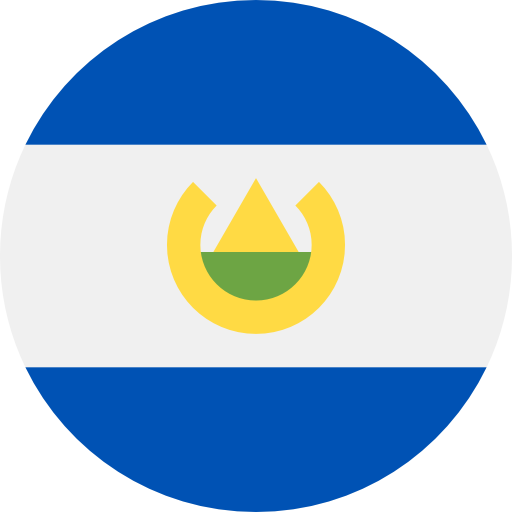
El Salvador
Impact | Negative
Rating Civicus | Obstructed
The Ministry of Health has included on its list of reserved information the memorandums and correspondence generated by the National Laboratory of Public Health concerning the tests used for diagnosing COVID-19 in the country. The government argues that public access to this documentation would “clearly endanger the life, safety or health” of the citizens.
As such, over the next two years this data will not be covered by the Law of Access to Public Information (AIP, in Spanish). Civil society organizations and media have called the measure “illegal” and the length of time during which data will be withheld “disproportionate”.
This is not the first attempt by the government to water down the AIP law, coming in the wake of previous reforms aimed at hindering access to information. For instance, a citizen who has been denied a public data request can now no longer approach the official access to information body (IAIP) directly, but rather must first appeal to the entity that refused the request. Javier Castro, director of the Department of Legal Studies at FUSADES, a nonprofit policy research body, said the fact that the reforms have been mandated by the executive and not established under law demonstrates “the president’s excessive regulatory power” which makes them “unconstitutional”.
A new public communication tool, not subject to scrutiny

Salvador
Impact | Negative
Civicus Rating | Obstructed
President Nayib Bukele announced on October 19 the release of Diario El Salvador. The new state-run media outlet is being touted as promising readers access to “the other side of the story” through “information provided in a truthful way”. A variety of sectors have expressed concern over the initiative.
In anticipation of the criticism, President Nayib Bukele said on Twitter that Diario El Salvador “will be a state-owned company, will generate jobs, pay taxes and be profitable”. However Factum Magazine, a local investigative periodical, reported that it is actually a corporation, established in March this year and owned predominately by two energy companies. As such, it falls beyond the control and auditing reach of the Court of Accounts of the Republic. Carlos Palomo, a member of the Citizen Observatory to the Court of Accounts, indicated that the nature of these state companies makes them “the perfect option for moving money about without control”, since neither the Government Ethics Court nor the Court of Accounts can supervise how resources are administered within them.
For their part, local media have described the move as an attempt by the government to produce political propaganda under the guise of independent journalism. Pedro Vaca, Special Rapporteur for Freedom of Expression of the Inter-American Commission on Human Rights (IACHR), also expressed his concern. It is necessary to look at the institutional checks and balances to which public media are subject, he said, in order to “avoid them becoming mechanisms of propaganda sponsored with resources from every citizen”.
NODIO: an observatory created by the government to control media misinformation

Argentina
Impact | Negative
Civicus Rating | Limited
Opposition legislators denounced the head of the Public Defender’s Office for Audiovisual Communication Services, Miriam Lewin, for abuse of authority and violation of the duties of a public official. The complaint is against NODIO, “Observatory of Disinformation and Symbolic Violence in the Media and Digital Platforms,” which was launched by the Ombudsman’s Office October 10. For its part, the federal justice system rejected the request for a precautionary measure to prevent the implementation of the observatory.
Opposition legislators argue that the observatory violates freedom of the press and fosters ideological persecution. In response to the opposition’s claim, Lewin went to Congress October 19. There he gave details about his administration and supported the NODIO initiative against claims that it could be used to silence dissident voices in the media. The Public Defender indicated that the objective of the observatory is to address disinformation and symbolic violence through research, analysis and promotion of citizen initiatives. She also clarified that the initiative does not have its own budget, nor does it have the functions of “prohibiting, fining or imprisoning”.
As announced by the Ombudsman’s Office at its launch, NODIO will be in charge of detecting, verifying and dismantling malicious news and its dissemination operations. The Ombudsman’s Office is an agency created in 2009, under the Legislative branch’s supervision, to receive complaints from radio and TV audiences, and represent their interests.
Within this framework of concern for the situation of freedom of expression in the country, the Argentine Journalism Forum (FOPEA), the Association of Argentine Journalistic Entities (ADEPA) and opposition legislators have expressed their discomfort in recent days over the prosecution of a journalist accused of being a member of an “illegal parastatal association” in the context of a case for illegal espionage. In a statement, ADEPA affirmed that the judge in charge of the case “took an unprecedented measure” by applying “figures that should be totally restrictive, such as that of the illicit association, ignoring the fact that investigative journalism has regular contact with sources whose activities are not always lawful or for the common good.
Bill to protect Journalists and Human Rights Defenders advances in Deputies

Mexico
Impact | Positive
Probability | Medium
Civicus Rating | Repressed
At the end of September, the Committee for the Interior and Population, presided over by the ruling party deputy Rocío Barrera, passed a bill that would strengthen the Law for the Protection of Human Rights Defenders and Journalists, through the application of Integral Protection Plans. Hundreds of reports of murder or disappearance in recent years make Mexico one of the most perilous countries for journalists today.
Addressing the bill, Deputy Barrera said it “articulates institutional efforts and establishes concrete faculties, obligations and competencies that are urgently needed to protect the exercise of journalism, freedom of expression and the defense and promotion of human rights”. However, opposition deputy Jorge Espadas questioned the government’s position, indicating that it has yet to analyze how the mechanism will operate and what economic resources it will have for its operation.
The Mexican government has come in for criticism over its defence of journalists and human rights defenders, with Amnesty International saying its “declarations contribute to creating a hostile environment for those practicing journalism and in the media”. The bill is likely to be analyzed by the Human Rights Committee before it arrives on the Chamber of Deputies floor.
Ortega enacted a law to control organizations receiving international funding

Nicaragua
Impact | Negative
Probability | High
Civicus Rating | Repressed
Daniel Ortega, president of Nicaragua, on October 19 enacted the Law Regulating Foreign Agents, which seeks to limit the action of organizations that receive international funding. The regulation requires all entities, foundations and associations that receive funds from abroad to register as “foreign agents”.
Each time they receive an offer of funds from abroad, the organizations must inform the Ministry of the Interior for which activities they will be used and otherwise adhere to the new law in terms of grant related expenditure, payments and contracts. Donations from foreign sources may not be used in activities that have not been previously declared and registered at a web portal to be created for that purpose. In case of non-compliance, the Ministry may impose fines or remove the organizations’ legal status. Since 2018, the Nicaraguan government has revoked the legal status of 10 civil society organizations in breach of due process.
The regulation, which is already in effect, had been presented on September 22 by the 70 deputies who make up the ruling party Frente Sandinista de Liberación Nacional (FSLN), and passed on October 14 by the National Assembly.

Voices of civil society
ARGENTINA
Statement on NODIO “Monitoring thought does not favor freedom of expression”: “The establishment of this type of state-backed surveillance body carries a certain risk of being misused as a subtle method to discipline or retaliate for reasons counter to the principles they claim to promote ”
EL SALVADOR
RAMON VILLALTA,EXECUTIVE DIRECTOR: Denying information about COVID 19 test results is a clear violation of the right of access to public information and also affects the human right to health. The publication of this information is not justified in Article 19 of the LAIP, since it does not put life and health in obvious danger. Quite the contrary: its non-publication puts people’s health at risk
INICIATIVA SOCIAL PARA LA DEMOCRACIA –
10/26/2020

Information of Interest
Venezuela
A large number of countries and international organizations supported the report of the Independent Mission of Venezuela and expressed their concern about the human rights violations in the South American country. As such, 22 members of the Human Rights Council voted last October 6 in favor of extending the mandate of the Mission for two years. Only Eritrea, the Philippines and Venezuela voted against. The OAS General Secretariat issued a statement asking the international community to act together to exert pressure and “bring the criminals to justice”, while the International Contact Group declared that Venezuela needs “the support of a world community that works together”.
El Salvador
Salvadoran civil society organizations requested the intervention of the Inter-American Commission on Human Rights (IACHR) in what they allege is a violation of judicial independence by President Nayib Bukele. Through a communiqué, they declared that the president “harasses” members of the Constitutional Chamber when they adopt positions counter to the interests of the government. In effect, Bukele described the judges as “corrupt” and “sold out” after the Supreme Court of Justice ordered him to be transparent on incomes in order to avoid a repetition of the non-payment of salaries of the members of the Legislative Branch. The complaints to the IACHR also included the government’s refusal to release files linked to the military sector in connection with the El Mozote massacre of 1981.
Guatemala
On October 9, President Alejandro Giammattei participated in the launch of the co-creation process of the V National Action Plan 2021-2023 for transparency and transformation of public management. With the virtual participation of civil society organizations, Giammattei instructed the Presidential Commission on Open and Electronic Government to coordinate the participation of different groups and sectors in the country. This new plan succeeds the IV Action Plan 2018-2020, which covered themes such as e-government, public innovation, and institutional strengthening, among others.
We strengthen democracies in Latin America
We are a non-partisan and independent organization that for 10 years has been promoting the constitution of autonomous, flexible, democratic and independent spaces, through dialogue with various actors in the public, private, academic and civil society sectors. The starting point of our work arises from the recognition and appreciation of the political and social plurality of Latin America.

Fundación Directorio Legislativo
Avenida Entre Ríos, 258 – 3E
Ciudad Autónoma de Buenos Aires, Argentina (C1079ABP)
Phone (+5411) 5218-4647

